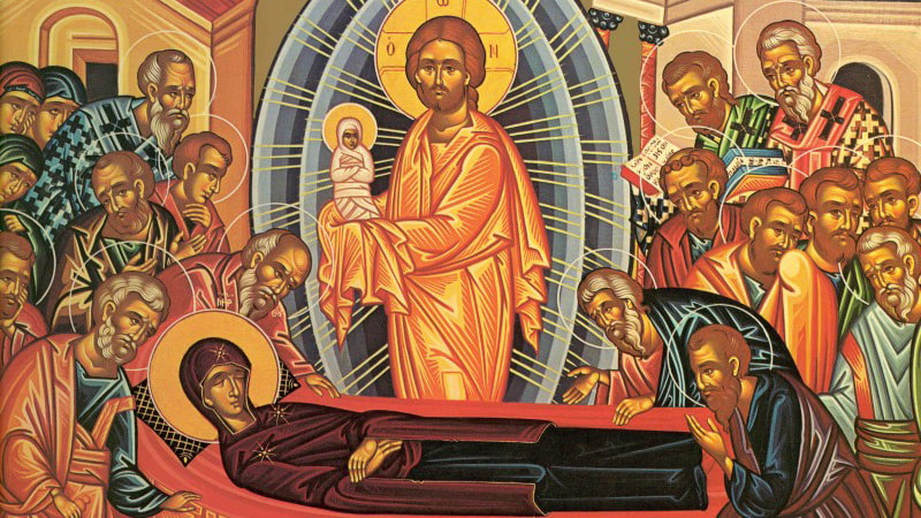|
By Fr. Michael Marcantoni In many novels, we find a prologue and an epilogue, which serve as bookends to the main content of the story and serve, respectively, as an introduction and a summary of the plot, characters, and motivations that are in play during the plot of the story. While it can be tempting to view these sections as superfluous, they provide a lens for the primary thematic elements of a story to be relevant beyond the immediate character’s arc. It should come as no surprise that the Church calendar is put together in a very deliberate way. The “New Year” for Orthodox Christians is celebrated on September 1st and the distribution of feasts along the annual trajectory is not capricious. The first “Great Feast” of the year is celebrated on September 8th, the “Nativity or Birth of the Theotokos,” and the last Great Feast is celebrated on August 15th, the “Dormition of the Theotokos.” Celebrations on the Orthodox calendar are arranged in a deliberate manner, intended to convey connections between the various disparate moments commemorated in the Orthodox Liturgical life. For instance, the Annunciation is commemorated on March 25th, nine months before the birth of Christ at Christmas. The same can be said of the intervals between the conceptions, births, and deaths commemorated elsewhere on the calendar. It should come as no great surprise that the Church first teaches us about the greatness of the Theotokos and Mother of Christ by beginning the Liturgical year with her birth as the first Great Feast and then concluding with the end of her life, her Dormition, as the last feast of the liturgical year. Interestingly, on the Feast of the Dormition, the Church reads the Gospel passage at Liturgy – not about the Mother of God, but of Mary and Martha – and ends it with the dialogue between Christ and a woman in the Crowd who says, “Blessed is the womb that bore you and the breasts where you nursed” but Christ responds, “Blessed are those who hear the word of God and keep it.” The greatness of our Mother, the Theotokos, is not simply in her having given birth to Christ devoid of any other attributes, but in the qualification that Christ gives for her blessedness: “Blessed are they who hear the word of God and keep it.” From her first hearing that she would bear the Christ from the Archangel Gabriel, to Christ’s Presentation in the Temple and even at the Wedding Feast of Cana, His mother is continuously described as having “kept things and pondered them in her heart.” (Luke 2:19). We learn from this that it is not mere formality of relationship that will save us or make us blessed. What makes the Theotokos blessed is the quality by which she lives out that relationship. She not only “hears the word of God,” but also keeps it. There are deep gaps of silence between the chronicled events that the Theotokos experienced and what she is recorded to have said. From this we learn the depth of Wisdom over Knowledge. There is the Annunciation, the “knowing” of things, and then its living out or the “wisdom” of acting on that word of God once we have received it. This injunction to not only hear the words, the theological facts about God, but to keep them, and to act on them at the right moment is essential to the thrust of both our corporate liturgical life and our individual struggle. Immediately after the beginning of the New Ecclesiastical Year, we are bidden to follow the life of this great lady from its beginning (Sept. 8th) to its end (Aug. 15th) in the hope that having received from Christ we might realize both the truth of what we need to act on, as well as the Wisdom of finding the right moment in which to apply those facts for the profit and salvation of our souls. Amen. Father Michael Marcantoni is the Priest of the Holy Spirit Church in Rochester, New York.
|
Topics
All
|


 RSS Feed
RSS Feed
